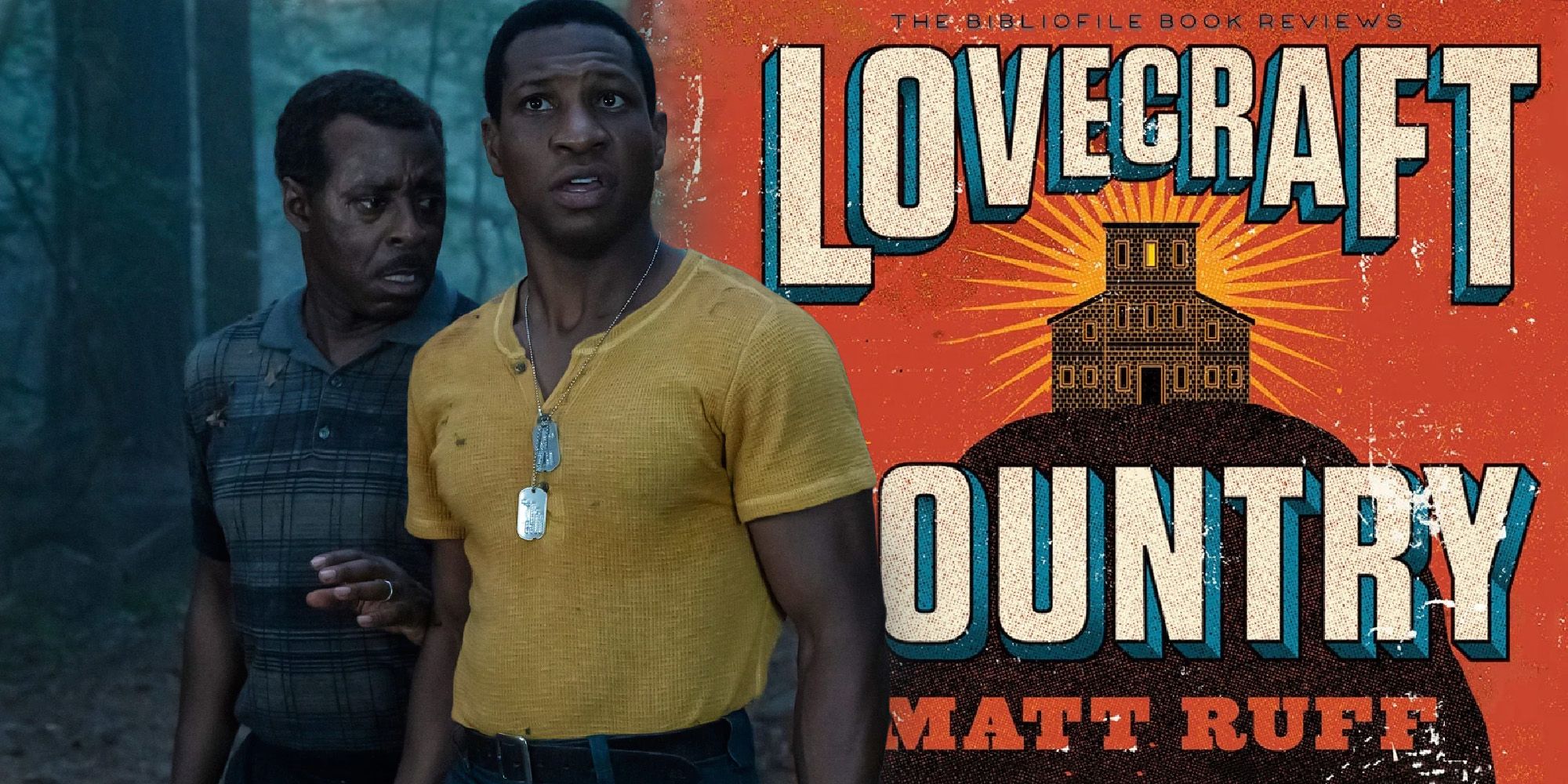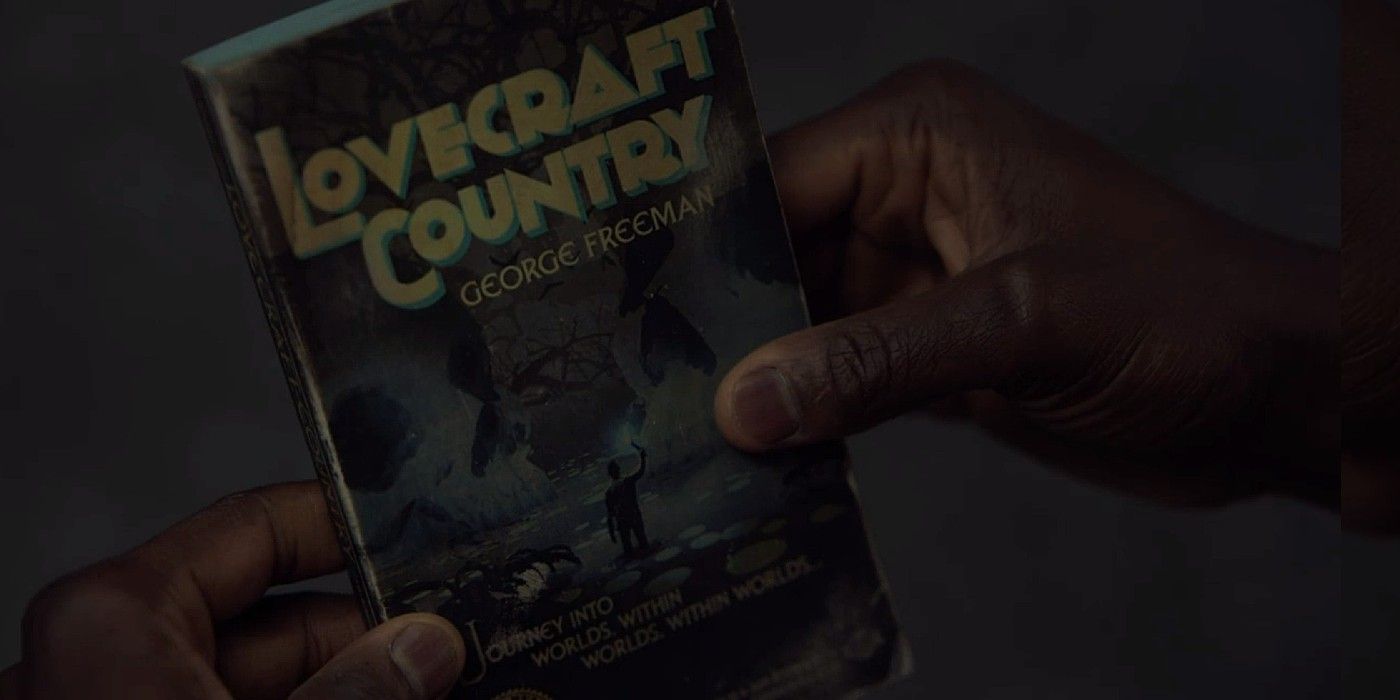WARNING! Spoilers for Lovecraft Country season 1, episode 8, "Jig-a-Bobo" ahead.
In Lovecraft Country season 1, episode 8, "Jig-a-Bobo", it was revealed that the Freeman family's story of monsters and magic was novelized by Atticus Freeman (Jonathan Majors) and Letitia "Leti" Lewis's (Jurnee Smollett) son George. The real-life novel was written by Matt Ruff, a white man; the series was adapted for HBO by showrunner Misha Green, a Black woman. It was a shocking reveal that the book was introduced directly in the show at all, but the change in authorship shifted the narrative's context entirely — here's how they did it, and why it's so important.
In recent years, Black horror creators, actors, and icons have crafted rich stories influenced by Black history as well as current events. When Jordan Peele's Get Out released in 2017, it showcased how the genre could be used as a successful and viable method of displaying the true horrors that Black people face in America. Shortly after its release, Rusty Cundieff was approached by Universal to create Tales From the Hood 2 due to the original's lasting significance. With the announcement of Nia DaCosta's Candyman and Lovecraft Country, the horror genre has become an increasingly important outlet to tell the truth about Black lives, history, and experiences in racism in America.
It is not uncommon to see a white person craft their own stories about Black lives; such is the case for the 2013 novel Lovecraft Country. Traditionally, histories are written by those who have the most power and privilege, which is predominantly white people and, more specifically, white men. By altering the authorship of the novel from a white man's perspective to a Black man's, it gives autonomy back to the Freeman family in the context of the HBO series as well as reinstating the fact that Black people have the right to tell their stories.
In Lovecraft Country season 1, episode 7, "I Am", Hippolyta Freeman (Aunjanue Ellis) travelled through time and space while searching for the cause of her husband's death. When Atticus shows up to save her from the unknown, he travels to the future and returns with a copy of Lovecraft Country, written by George Freeman. At this point, Leti has not revealed to him that she is pregnant. Upon discovering the novel, Atticus notices that the story of Lovecraft Country is written about their experiences with the Sons of Adam, magic, Ardham, and more, leading him to conclude that George Freeman is definitively his son. The novel could become a dangerous tool that may lead to astronomical changes with the Freeman family timeline. As was established in episode 9, "Rewind 1921", changing the past based on what is known about the future can have dire consequences.
From the very beginning of the series, Montrose Freeman (Michael K. Williams) has been outspoken about his disdain for his son reading science-fiction and horror that's written by white men and racists. The fact that a Black man, his grandson, wrote this specific novel speaks to the importance of representing Black creators in an array of genres in the real world. By altering the context of Lovecraft Country, Misha Green showcases an important moment for the family. Historically, Black stories and histories are rewritten, erased, or told from the perspective of white people. The moment George Freeman became the author of his family's story was the moment that he took back the authority of authoring Black stories.
The entirety of Lovecraft Country subverts the racist horror icon H.P. Lovecraft. He was known for his egregious depictions of Black people, using slurs, and even naming his cat after one. Not only did Lovecraft Country season 1, episode 8, "Jig-a-Bobo," alter the authorship of the original novel from a white man to a Black man, it also further subverted Lovecraft's racism by doing so.


